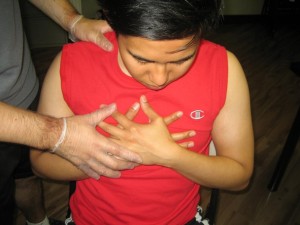Bibasilar atelectasis occurs if there is incomplete collapse of the lungs. This form of collapse occurs if the alveoli in the lungs deflate.
https://www.youtube.com/watch?v=CJoJAOmTr4A
What are the signs?
Bibasilar atelectasis might not trigger any symptoms that are evident. Nevertheless, if symptoms are present, the usual ones include:
- Coughing
When it comes to bibasilar atelectasis, it typically develops if the individual had a surgical procedure that involves the administration of general anesthesia, particularly abdominal or chest surgery. - Difficulty breathing
- Shortness of breath
- Rapid and shallow breathing
In most cases, difficulty breathing is the initial sign present.
Possible causes of bibasilar atelectasis
When it comes to bibasilar atelectasis, it typically develops if the individual had a surgical procedure that involves the administration of general anesthesia, particularly abdominal or chest surgery. Nevertheless, there are also other causes as well.
The causes are categorized into 2 categories – obstructive and non-obstructive.
Obstructive
This type is caused by something that obstruct the airway such as:
- Buildup of mucus in the lungs which causes the formation of a mucus plug that occurs after certain forms of surgery.
- Foreign object that has been breathed into the lungs such as a piece of toy or food.
- Narrowing of the main airways such as chronic infections or tuberculosis.
- Blood clot within the airway unless there is significant bleeding into the lungs and unable to expel it.
- Abnormal growth in the airway
Non-obstructive
This type is brought about by something that produces pressure on the lungs where it does not allow the lungs to be filled with oxygen such as:
- Chest injuries which makes it difficult for the individual to deeply breathe
- Pleural effusion
- Pneumothorax
- Tumor that is not blocking the airway but places pressure on the lungs and does not allow them to inflate
- Large intake of sedatives or opioids
- Difficulty in moving due to illness, injury or disability
- Some neurological conditions that lessen the ability to deeply breathe
Additionally, obesity might also be a risk factor or cause for a non-obstructive form of bibasilar atelectasis. If there is excess weight on the lungs, it might be difficult to take a deep breath which can lead to this condition.

